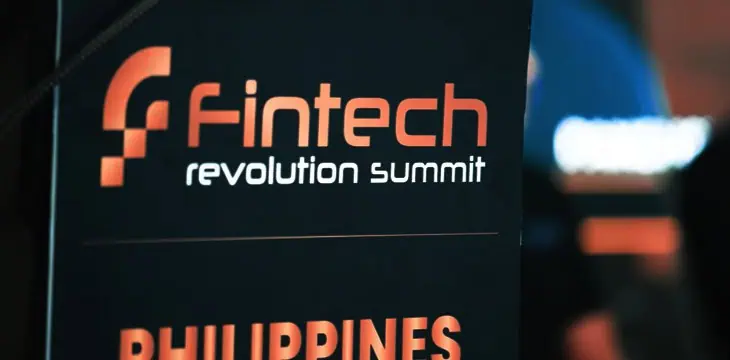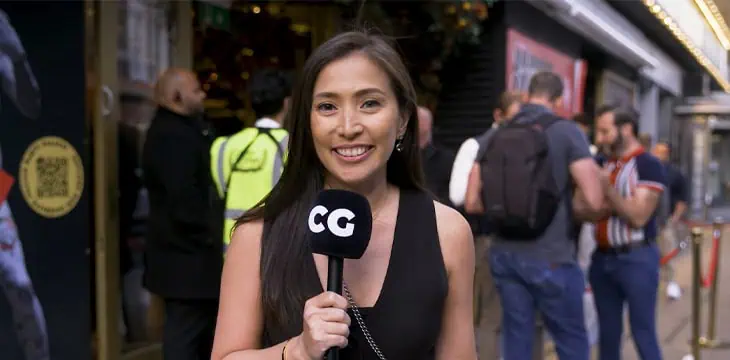|
Getting your Trinity Audio player ready...
|
The Islamic Finance industry could utilize the BSV blockchain to make commodity trade sequences (or “Murabaha”) more efficient, says Bitcoin Association for BSV Ambassador Masumi Hamahira. Speaking on a panel about how digitization and blockchain could affect the Islamic Finance world, Hamahira-san said BSV could make IF records “more clean and beautiful,” while staying in compliance with Sharia regulations.
Hamahira-san was speaking at the Online World Islamic Economics and Finance Conference that ran from January 29 to 30, 2022, organized by Minhaj University Lahore in Pakistan. Joining him on the panel were moderator Mughees Shaukat, Salman Kabani from Oman’s Bank Nizwa, Mohamed Kateeb from Azentio Software, and Bilal Rasul, Head of Islamic Finance and Registrar at SEC Pakistan.
Fruitful discussion on BSV blockchain adoption with the regulator in Pakistan @ The 5th World Islamic Economics & Finance Conference at Minhaj University Lahore, Pakistan. pic.twitter.com/iPzzPcujRM
— MASUMI (@MasumiHamahira) January 30, 2022
The discussion was titled, “From cryptocurrencies and fintech to CBDC? Discussion from the dimension of Islamic digital economy,” and discussed the changes that blockchain, digitization and fintech would bring to their industry, with a particular focus on regulation and cybersecurity.
Timestamping and record-keeping on BSV could make Islamic commodity trades more efficient
Hamahira spoke specifically about compliance within the Islamic Finance world, which operates on somewhat different principles to other international finance. One important function in IF is the concept of Murabaha, or trading physical commodities from one seller to another in a sequence, where each trade must be finalized before the next can begin. Currently, this relies on manual record-keeping and trusted third parties, with administrative costs eating up a lot of the efficiency.
Using blockchain contracts (on BSV) could make this process more efficient and eliminate counterparty risk, Hamahira said. The BSV blockchain is immutable and traceable with a helpful timestamping function, he said, giving traders on-chain swaps with records useful to a Sharia review/audit process—as well as reducing fraud.
“Transactions will be more clean and beautiful. No one can run away from a fake record,” he said.
He added that he doesn’t like asset speculation in digital assets (which is frowned upon or forbidden in the Islamic Finance world) and sees Bitcoin’s blockchain more as a reliable way to create and maintain records. He added that the technology could be used just as easy for entertainment purposes, saying his children would love to be able to trade their Fortnite gaming items using the same networks.
There have been claims that no government or bank will build a record-keeping system on a public blockchain; however, Hamahira noted that people once said no bank or government would ever use the public internet. This has proven to be a bad prediction, and there’s no reason such institutions couldn’t use the Bitcoin blockchain if security standards are met.
Security, privacy and regulatory concerns—but digital finance is inevitable
Other participants spoke about digital assets (“cryptocurrencies”) and government-backed digital currencies more generally, and what issues regulators would need to focus on. All agreed that digitization, digital assets and blockchains were an inevitability in all aspects of finance, as was their regulation—but that clear regulations don’t currently exist to cover them.
There’s also a geopolitical dimension to the discussion, given the dominance of U.S. dollar around the world. Countries like Russia, Turkey and Iran are very interested in how new technologies could take the dollar out of the equation. Meanwhile, Switzerland is taking an interest in blockchain given its traditional role as an international finance hub.
Speaking from the SECP, Pakistan’s financial regulator, Bilal Rasul said he was “looking forward to it,” and that “the regulator doesn’t have a choice” in what technologies will emerge. Disruption is already here and creating a whirlwind, and there was a lack of clarity over demarcating who was responsible for what aspect.
As such, there will be a lot of overlap as fintech companies and banks act as “collective regulators,” mainly by gathering all data they consider relevant so it can be easily accessed by whomever becomes responsible in the future. He advised fintech companies not to wait for standardization, but to act now.
“The train is already running but the tracks haven’t been laid yet,” Rasul said.
There exists a “clear business case for Islamic Finance” in digital currencies and blockchain, said Salman Kabani of Oman’s Bank Nizwa. There would be a need for “more automation on the backend” to maintain clear records and satisfy regulators, and a purely digital currency could definitely be backed by a government.
Mughees Shaukat said that, while “decentralization” is just as inevitable as a concept as digitization in general, regulators were being scared by the concept of “de-reg” or “decentralized regulation” driven by blockchain technologies and companies acting independently to create their own system of regulations.
He referred to “the embedded dark side of all this, called cybersecurity,” and asked if the blockchain industry could overcome its problem with thefts and Ponzi scams.
Mohamed Kateeb spoke positively about “Web 3.0” technology advances, saying they were creating “a sustainable economy based on the individual”. He cautioned against trying to bundle the issues of fintech and digital currencies together from a regulatory standpoint, saying they were separate issues and too complex to try and work out from a regulatory standpoint before anyone acts.
Privacy is a big issue and so are technological advances like quantum computing, which could render all current security platforms useless. However, he said that “crypto” draws a lot of its attraction from the fact that no central authority “controls” it, and that systems to handle regulation and security would “evolve as the system evolves.”
Watch: Masumi Hamahira discusses Islamic Finance and BSV on The Bitcoin Bridge

 07-02-2025
07-02-2025 





